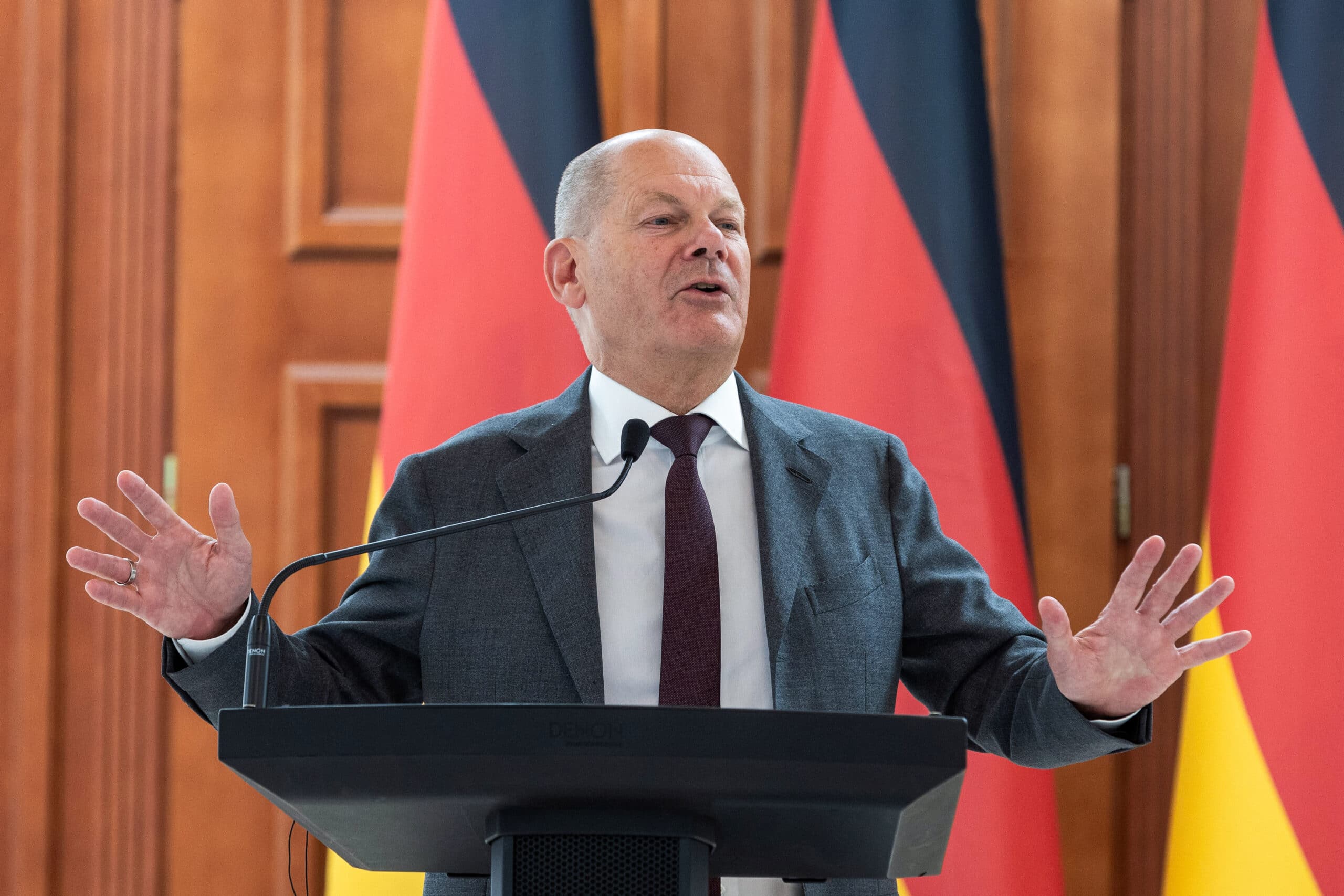
German Chancellor Olaf Scholz speaks during a press conference with President of Moldova as part of a visit to the Presidency of Moldova headquarters, in Chisinau, on August 21, 2024. (Photo by Elena COVALENCO / AFP)
Frankfurt, Germany — German inflation fell to its lowest level in more than three years in August, official data showed Thursday, strengthening the case for another interest rate cut by the European Central Bank next month.
The annual inflation rate in Europe’s biggest economy eased more than expected to 1.9 percent, preliminary data from federal statistics agency Destatis showed, down from 2.3 percent in July.
Analysts surveyed by FactSet had predicted an August inflation rate of 2.1 percent.
The last time German inflation was below two percent was in March 2021.
READ: German business morale falls again in August
The August slowdown was driven by a 5.1-percent decline in energy prices, while services inflation was sticky at 3.9 percent.
Core inflation, which strips out volatile energy, food, alcohol and tobacco prices, remained elevated at 2.8 percent.
“People have more money in their wallets again. Inflation is falling, real wages are rising for the fifth quarter in a row,” Chancellor Olaf Scholz said on X.
Elsewhere in the eurozone, inflation also cooled in Spain in August as fuel and food prices eased, data released by the INE national statistics office showed Thursday.
The latest figures will make for welcome reading for European Central Bank policymakers as they weigh whether to cut interest rates at their meeting on September 12.
Eurozone inflation soared past 10 percent in October 2022 after energy prices soared in the wake of Russia’s invasion of Ukraine.
That prompted the ECB to aggressively raise interest rates to cool inflation, with the first cut after the hiking cycle only coming in June.
The ECB held off from a second rate cut in July but there are growing expectations it could lower borrowing costs again next month.
“Today’s inflation data clearly tilts the balance towards a September rate cut,” said ING bank economist Carsten Brzeski.
Eurozone inflation has eased significantly in recent months, reaching 2.6 percent in July. But it remains above the ECB’s two-percent target.
The eurozone inflation figure for August will be published on Friday.

